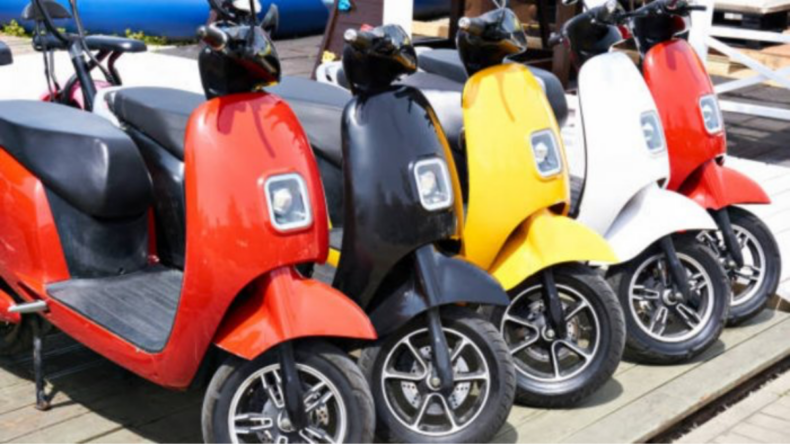India’s third-biggest two-wheeler manufacturer is negotiating with a group of global private equity investors to finance $300-500 million (Rs 2,220-3,700 crore) for its electric vehicle division.
TVS established an electric vehicle subsidiary in the second part of October, arguing that it will provide it with “size and flexibility” to develop its EV operations.
According to a top company official, Chennai-based TVS Motor Company will introduce a comprehensive range of electric two- and three-wheelers with power output ranging from 5 to 25 kilowatts in the next two years aspires to play a leadership position in the country’s burgeoning electric vehicle industry.
The firm, which has set aside Rs 1,000 crore for its electric vehicle (EV) sector, would also continue to invest in conventional combustion cars, where it sees prospects for development.
We are enthusiastic about EVs. “We’re investing in establishing expertise and products to play a leadership position in the EV market in the future, which we feel will grow quickly,” TVS Motor Company Joint Managing Director Sudarshan Venu told PTI.
He stated that the corporation is investing over a billion rupees in the EV endeavour, with a workforce of over 500 engineers working to create new electric cars.
Mr Venu stated of the new EV product roadmap, “We will have a comprehensive range, which we will deploy in phases over the next two years from 5 to 25 kilowatts – two-wheelers and three-wheelers in both passenger and freight (segments) as well.”
“We will also announce an improvement on the TVS iQube (the company’s existing electric scooter) in the next couple of months,” he said. The Qube, which has a maximum power output of 4.4 kW and a range of 75 kilometres on a single charge, is now available in four cities.
“Our objective is to take this national by the end of the fiscal year,” he added, adding that TVS Motor Company wants to increase the iQube’s availability to another 20 locations in September alone.
When asked if TVS intended to sell its EVs, Mr Venu responded, “We absolutely feel that TVS has an excellent worldwide business and we will try to export EVs as well.” While Mr Venu is optimistic about EVs, he adds, “At the same time, I saying the actual pace of electric vehicle adoption will depend on a variety of factors, including the maturity of technology, improvements in technology and advances, subsidies and customer acceptance, and the creation of charging infrastructure.”
From TVS’s perspective, he stated, “We will invest ahead of time and be ready for this… We’re also introducing charging agreements to increase customer convenience and rapid charging.” Mr Venu stated that TVS would continue to invest in areas where it sees development possibilities and promise for conventional internal combustion engine cars (ICE).
They would continue to invest in this area as needed. We have a consistent product cadence. These launches will be fully supported, and if we perceive an opportunity in this field, we will undoubtedly continue to invest,” he added.
Mr Venu stated that the company sees the ICE business as having excellent momentum, particularly in specific categories and also in export markets, but that “EV is really important for us and we’re investing behind it.”
TVS Motor Company’s recent decision to establish a distinct branch for EV operations coincides with the government’s aims to decarbonize the domestic transportation industry. By 2030, the government hopes to achieve EV market penetration of 30% for individual automobiles, 70% for commercial vehicles, and 80% for two and three-wheelers.
In the second quarter of 2021-22, TVS Motor Company announced its highest-ever revenue of Rs 5,619 crore.
Following Tata Motors‘ announcement of a $1 billion fund infusion into its electric vehicle (EV) business by a consortium of TPG Rise Climate and Abu Dhabi’s ADQ, south-based two-wheeler maker TVS Motor Company is also considering a similar fundraising exercise, according to industry sources with knowledge of the matter.
Significantly, on October 21, 2021, TVS Motor Company’s board of directors approved the formation of a separate entity to house its electric mobility business.













